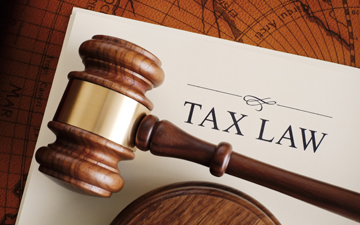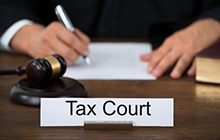Can the CRA force a taxpayer to provide any document during a GST/HST audit?

The legal threshold is very low, says lawyer Cyndee Todgham Cherniak
TORONTO – We regularly get asked whether the Canada Revenue Agency ("CRA") can ask for particular documents during the course of a goods and services tax ("GST") / harmonized sales tax ("HST") audit or during a GST/HST appeal. Usually, the question is in the form of a statement "they are not allowed to ask for that." Our answer to the question "Can the CRA force me to give them this document" depends upon the document that is being requested and the relevance of the document to the issue. That being said, in most cases, the document has to be produced and it is not worth fighting with the CRA and turning a routine audit into an acrimonious audit.
There are many cases in which the Court, when asked to compel a taxpayer to give the CRA a document, does so. Recently, the Federal Court of Canada issued a decision, Canada (National Revenue) v. Atlas Tube Canada ULC, 2018 FC 1086 (November 11, 2018) which addressed the issue of production of a requested document. In this case, the Minister of National Revenue (the Minister who oversees the CRA) brought an application to compel Atlas Tube Canada ULC ("Atlas") to produce a draft due diligence report that had been prepared by Ernst & Young. The draft due diligence report described certain tax attributes of related parties and ability to take certain income tax related matters. The CRA had requested the draft report during the course of an income tax audit. Atlas refused to provide the draft report on the basis that (1) it was not relevant, (2) it was subject to solicitor-client privilege, and (3) it was prejudicial.
After considering the evidence and the law, the Federal Court ordered Atlas to produce the draft report. This would allow the CRA auditor to see what changed from the draft report to the final report.
The issue for the Federal Court was whether Atlas was required under section 231.1 of the Income Tax Act to provide the Minister with access to the Report following the Minister's requests therefor. A similar provision, section 288, is contained in the Excise Tax Act. Subsection 288(1) of the Excise Tax Act provides as follows:
"An authorized person may, at all reasonable times, for any purpose related to the administration or enforcement of this Part, inspect, audit or examine the documents, property or processes of a person that may be relevant in determining the obligations of that or any other person under this Part or the amount of any rebate or refund to which that or any other person is entitled and, for those purposes, the authorized person may
(a) subject to subsection (2), enter any premises or place where any business or commercial activity is carried on, any property is kept, anything is done in connection with any business or commercial activity or any documents are or should be kept; and
(b) require the owner or manager of the property, business or commercial activity and any other person on the premises or in the place to give to the authorized person all reasonable assistance and to answer all proper questions relating to the administration or enforcement of this Part and, for that purpose, require the owner or manager to attend at the premises or place with the authorized person."
The Court was clear that the legal threshold that the CRA must meet when requesting documents is very low. The Court wrote: "[b]oth parties acknowledge that there is a low threshold of relevance to be met by the Minister, such that the Minister does not have to establish that the requested documentation is relevant, only that it may be relevant." The Court also wrote that "[t]he law does not require the Minister to demonstrate that the Report is relevant to a particular issue under audit."
In this case, the Court had no difficulty concluding that the low threshold had been satisfied. The Court held that "the Minister's purpose in seeking the Report relates to the administration or enforcement of the Act and that the information in the Report may be relevant to an amount payable by the taxpayer under the Act."
 |
Cyndee Todgham Cherniak is the founding lawyer of LexSage. |
What Atlas means for taxpayers is that the Court will grant the CRA wide latitude in making requests for documents from a taxpayer. As a result, it may not be worthwhile to refuse to provide documents during an audit as the Court will likely require production if an application is filed for court intervention.
However, if the document being requested is truly protected by solicitor-client privilege, the taxpayer should make that claim. It is a fundamental principle of the Canadian legal system that lawyers and their clients must be able to communicate freely about issues and that their communications are protected from disclosure/production. That being said, in the Atlas decision, the Court found that Atlas had not established that the draft report was subject to solicitor-client privilege. Importantly, the draft due diligence report was a direct communication by a law firm and Atlas and was not prepared by a law firm (but rather an accounting firm).
The Court also considered whether compelling Atlas to provide the Report offend the principle that a taxpayer is not required to self-audit. Atlas relied on the decision in BP Canada Energy Company v Minister of National Revenue, 2017 FCA 61 ("BP"). The documents sought by the Minister in that case were internal accounting documents of BP, generally referred to as tax accrual working papers ("TAWPs"). In paragraph 2 of the Federal Court of Appeal's BP decision, the Federal Court of Appeal acknowledged that the information contained in TAWPs is highly sensitive as these papers typically reveal uncertain tax positions taken by public corporations in filing their tax returns, opinions as to the likely outcome in the event of a challenge by the Minister, and related reserves established to ensure sound and fair financial reporting. In BP, the Federal Court of Appeal held that the CRA could not compel production of TAWPs. The Court held that the Minister cannot compel a person to self-audit on an ongoing basis and then use that information against the taxpayer.
In the end, the Federal Court ordered Atlas to give the draft due diligence report to the CRA and pay the Minister's costs in having to bring the motion.
While taxpayers can ask whether the CRA is justified in asking for certain documents, taxpayers must also be careful to not obstruct the audit. If the CRA will be entitled to obtain the documents by court order, it may not be worthwhile putting up unnecessary roadblocks just because you do not like the idea of the CRA asking for documents. A taxpayer must ask whether the document is relevant to the tasks being performed by the CRA (that is, a review of the facts to understand whether the taxpayer has complied with tax laws). If the answer is yes, the document will likely be produced in the end unless the document is subject to solicitor-client privilege or some other exclusionary rule (like the self-audit rule, doctor-patient privilege, litigation privilege, etc.). Carefully consider what battles are worth fighting (and spending money on legal fees to fight the battle). Getting to "yes" may involve strategic compromise.
Cyndee Todgham Cherniak is the founding lawyer of LexSage, a boutique international trade law and sales tax firm in Toronto.





(0) Comments